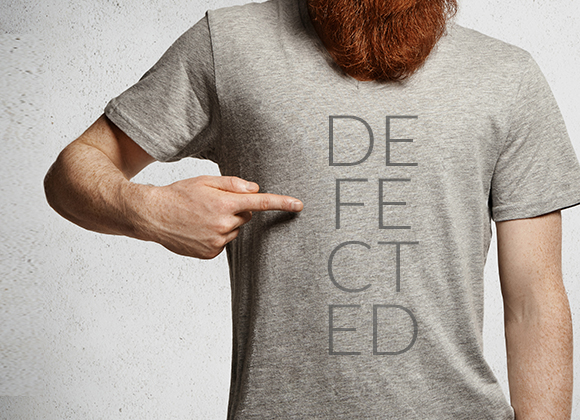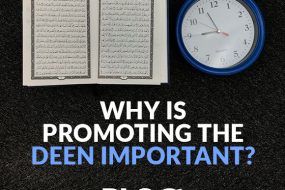
What is the problem…?
If we are completely honest with ourselves, most of us at some point or another have picked fault with another to one degree or another, even if just for a minor issue. It is often thought that the reason why people engage in such actions is because highlighting the faults of others makes us feel better about ourselves by looking at where others are lacking.These faults are usually identified from what we see on the outside; the way a person is physically presented or characteristics they have openly exhibited, which may be disagreeable to your own values and opinions.
Imam al-Baqir has said, “Sufficient is a person’s own defect (in himself) that he tries to pick and look for faults in other people, when he himself has those same faults in himself (and does not recognize them)!”
Imam Ali has also said, “One who contemplates his own flaws is too busy to consider other people’s faults, and the one who is satisfied with whatever sustenance Allah has provided him does not grieve over that which he has lost. The one who observes the shortcomings of others, disapproves of them, and then adopts them for himself is truly a fool.”
Whilst these quotes don’t come from an authentic Islamic source, they do serve as a good reminder to us about why Allah![]() does not look favourably on the one who points the finger, blames, finds faults and accuses others wrongfully and unjustly.
does not look favourably on the one who points the finger, blames, finds faults and accuses others wrongfully and unjustly.
For example…
That sister who you frowned upon for looking at you in such a rude manner in the store today had just received news that her father passed away last night and she is grieving. It may be that her level of taqwa is one far superior to yours in the eyes of Allah![]() . On the outside, she didn’t come across as a pious woman, she didn’t greet you with salaams, but she went home that night, broke her fast like she does every Monday and Thursday, gave a 5% of her wage on charity, and woke up to pray in the last third of the night.
. On the outside, she didn’t come across as a pious woman, she didn’t greet you with salaams, but she went home that night, broke her fast like she does every Monday and Thursday, gave a 5% of her wage on charity, and woke up to pray in the last third of the night.
That brother, that after you smelt alcohol and smoke on his clothes, you turned away from in disgust, even though he really wanted to talk to you, he was recently diagnosed with terminal cancer and requires regular medication to treat his symptoms and was just looking for comfort in a friend. He needed to take his medication immediately and was tired so the nearest place he could get water to use his medication was a public house. You thought he was engaged in haram and didn’t want to be seen associating with him, but he is enduring his illness and pain with patience, yet you have no patience with him.
Putting the shoe on the other foot also, it might be that you don’t fully appreciate this until you are the one who is seemingly at fault. I can draw on my own example as an illustration of this. Stumbling down the street, tripping over my feet, asking people along the way in my slurred voice if they could give me directions to the GP surgery…naturally, one might assume that I was drunk in broad daylight. How shameful. In response, a couple of people ignored me and those who did respond looked disgusted, as did those who passed me by. Actually, I was experiencing a Multiple Sclerosis relapse and therefore I was experiencing the inability to walk and talk properly as a result of active brain and spinal lesions. Whilst I knew Allah![]() would not be judging my actions in the same way others were, I was concerned about the way others would be judging Islam, based on their judgement of my actions, in a Muslim minority country.
would not be judging my actions in the same way others were, I was concerned about the way others would be judging Islam, based on their judgement of my actions, in a Muslim minority country.
![]() Why are these judgements dangerous…?
Why are these judgements dangerous…?
These kinds of judgements can open the doors to many a sin. It becomes too easy then for this to turn into an opportunity for backbiting and tarnishing the reputation of the person in question. If it becomes a habit to solely focus on the faults of others, then it can be a habit that will spill over into the home and become toxic within the marriage and family. The brother will come home and call his wife lazy because the house is a mess and his dinner is not cooked, overlooking that she spent all day caring for his children. The wife will accuse the husband of coming home late, overlooking that he stayed on extra hours to provide for the family.
If only we could all draw upon the example set in Islam in these scenarios.
What does Islam say about this…?
‘O you who have believed, let not a people ridicule [another] people; perhaps they may be better than them; nor let women ridicule [other] women; perhaps they may be better than them. And do not insult one another and do not call each other by [offensive] nicknames. Wretched is the name of disobedience after [one’s] faith. And whoever does not repent – then it is those who are the wrongdoers’ (Al Hujarat, 49:11)
It is important that we remember that Allah ![]() will not judge these people who you are passing judgement on, or indeed yourself, by what you are seeing, but what is in their heart.
will not judge these people who you are passing judgement on, or indeed yourself, by what you are seeing, but what is in their heart.
‘On the authority of Abu Hurayrah (may Allah be pleased with him) who said: Taqwa (piety) is right here [and he pointed to his chest three times]. It is evil enough for a man to hold his brother Muslim in contempt. The whole of a Muslim is inviolable for another Muslim: his blood, his property, and his honour.” 1
Allah![]() is the only one who can see into a person’s heart, so as much as you might think that a person has bad intentions in their actions, Allah
is the only one who can see into a person’s heart, so as much as you might think that a person has bad intentions in their actions, Allah ![]() is the only one that can see their true intentions and ultimately, will be the only one who will judge them, not you, so save judgement to Allah
is the only one that can see their true intentions and ultimately, will be the only one who will judge them, not you, so save judgement to Allah![]() .
.
‘And your Lord knows what their breasts conceal and what they declare.’ (Al Qasas, 28:69)
How to overcome it..?
As we can see, Islam offers the perfect solution to overcoming this problem, that we all face as a society. Very much like the process of Cognitive Behavioural Therapy, we can work on replacing negative and often irrational assumptions about people’s overt behaviour with those that are more rational and positive.
Firstly, we must realise that much of these judgements are generally born out of ignorance, so begin by recognising your own ignorance.
‘Take what is given freely, enjoin what is good, and turn away from the ignorant’ (Al-Araf, 7:199)
And take a merciful approach towards others. After all, if we can’t be merciful to others, how can we expect Allah ![]() to be merciful to us?
to be merciful to us?
Hamdun al-Qassar, one of the great early Muslims, said, “If a friend among your friends errs, make seventy excuses for them. If your hearts are unable to do this, then know that the shortcoming is in your own selves.” 2
Whilst this is not taken from the Qur’an or Sunnah, it is very much in line with what the Prophet Muhammad ![]() speaks about in the following authentic hadith.
speaks about in the following authentic hadith.
Narrated Abdullah ibn Amr ibn al-‘As ![]() :The Prophet
:The Prophet ![]() said: The Compassionate One has mercy on those who are merciful. If you show mercy to those who are on the earth, He Who is in the heaven will show mercy to you.” 3
said: The Compassionate One has mercy on those who are merciful. If you show mercy to those who are on the earth, He Who is in the heaven will show mercy to you.” 3
So, next time you judge a sister for not wearing her hijab properly, or a brother for engaging in sin, take a step back and look at yourself first and then look for alternative reasons why the brother or sister might be behaving this way. Purify yourself first before pointing the finger.
Please share your thoughts about this article in the comments section below. We love to hear what you have to say. 🙂








3 replies on “Reframing Your Judgments”
Jazaki Llahu khairan, sister, may Allah reward you. It is always very useful and important to remind ourselves about this matter. I personally have been experiencing that, when I am in harmony with myself, I don’t care about others’ faults, on contrary, I feel simpathy for their shortcomings and am open to understand and be closed to them.. bus when something is wrong with me, I am hostile towards others… I think this is a main point, as you underlined in your article, and as in the quotes you cited. May Allah subhanahu wa ta’ala help us improving us through the best example of man, the Prophet salla Allahu ‘alayhi wa sallam. Really I have also found, becoming muslim, that Islam is a therapy for all the humans’ problems, al hamduliLlah! When we read the ahadith in which the Prophet salla Allahu ‘alayhi wa sallam is showing all his love and mercy to the people of any kind, we strongly wish to be like him.
fi amani Llah, Aysha umm Hamid
A very important topic.
The reason we are judgemental are
The eyes can’t see self
To see oneself you have to look inside your heart.
And there will many prejudice voices from your past. You have to see things as they are not putting your colour on it.
This is the Dua of Rasool Ul Allah saw Allah make me see things as they are.
Finding faults with others is one of the greatest weapons of shaitan.
It takes your focus Wastes your time and occupy in things that don’t matter for your wellbeing.
It arouses emotions and thoughts that might leave you astray.
Your focus should always be on improving yourself and doing and propagating good.
This doesn’t mean if you are a witness for a person a government authority or a court that you hide the truth and give your honest opinion if it will serve justice peace and human wellbeing.
Jazaaki-llahu khaira